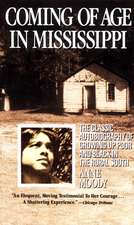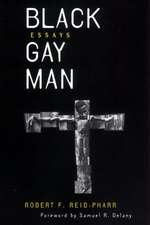Fighting on Two Fronts – African Americans and the Vietnam War
Autor James E. Westheideren Limba Engleză Paperback – 31 mar 1999
| Toate formatele și edițiile | Preț | Express |
|---|---|---|
| Paperback (1) | 228.00 lei 6-8 săpt. | |
| MI – New York University – 31 mar 1999 | 228.00 lei 6-8 săpt. | |
| Hardback (1) | 524.54 lei 6-8 săpt. | |
| MI – New York University – 31 mar 1997 | 524.54 lei 6-8 săpt. |
Preț: 228.00 lei
Nou
Puncte Express: 342
Preț estimativ în valută:
43.63€ • 45.28$ • 36.47£
43.63€ • 45.28$ • 36.47£
Carte tipărită la comandă
Livrare economică 15-29 martie
Preluare comenzi: 021 569.72.76
Specificații
ISBN-13: 9780814793244
ISBN-10: 081479324X
Pagini: 248
Dimensiuni: 152 x 227 x 19 mm
Greutate: 0.42 kg
Ediția:Revised
Editura: MI – New York University
ISBN-10: 081479324X
Pagini: 248
Dimensiuni: 152 x 227 x 19 mm
Greutate: 0.42 kg
Ediția:Revised
Editura: MI – New York University
Recenzii
"A very powerful account of a significant aspect of recent American military history."
--Journal of Military History "Westheider has researched very thoroughly-an effort including extensive interviews with Vietnam veterans-and he possesses a rare gift for narrative that makes the result of all this research eminently readable. A highly desirable addition for both African American studies and military affairs collections. . . . [an] invaluable history."
--Booklist "Highly recommended."
--Library Journal "James E. Westheider persuasively argues that black soldiers were the key factor in bringing about a more egalitarian military. This book significantly advances our understanding of both race relations and armed forces."
--Charles Moskos, Northwestern University "With this meticulous investigation of how institutional racism operated in the military of the 1960s and 70s, James Westheider provides us with a model for making sense of institutional sexism in the Tailhook-era military."
--Cynthia Enloe, author of The Morning After: Sexual Politics at the End of the Cold War
"A very powerful account of a significant aspect of recent American military history." --Journal of Military History "Westheider has researched very thoroughly-an effort including extensive interviews with Vietnam veterans-and he possesses a rare gift for narrative that makes the result of all this research eminently readable. A highly desirable addition for both African American studies and military affairs collections... [an] invaluable history." --Booklist "Highly recommended." --Library Journal "James E. Westheider persuasively argues that black soldiers were the key factor in bringing about a more egalitarian military. This book significantly advances our understanding of both race relations and armed forces." --Charles Moskos, Northwestern University "With this meticulous investigation of how institutional racism operated in the military of the 1960s and 70s, James Westheider provides us with a model for making sense of institutional sexism in the Tailhook-era military." --Cynthia Enloe, author of The Morning After: Sexual Politics at the End of the Cold War
--Journal of Military History "Westheider has researched very thoroughly-an effort including extensive interviews with Vietnam veterans-and he possesses a rare gift for narrative that makes the result of all this research eminently readable. A highly desirable addition for both African American studies and military affairs collections. . . . [an] invaluable history."
--Booklist "Highly recommended."
--Library Journal "James E. Westheider persuasively argues that black soldiers were the key factor in bringing about a more egalitarian military. This book significantly advances our understanding of both race relations and armed forces."
--Charles Moskos, Northwestern University "With this meticulous investigation of how institutional racism operated in the military of the 1960s and 70s, James Westheider provides us with a model for making sense of institutional sexism in the Tailhook-era military."
--Cynthia Enloe, author of The Morning After: Sexual Politics at the End of the Cold War
"A very powerful account of a significant aspect of recent American military history." --Journal of Military History "Westheider has researched very thoroughly-an effort including extensive interviews with Vietnam veterans-and he possesses a rare gift for narrative that makes the result of all this research eminently readable. A highly desirable addition for both African American studies and military affairs collections... [an] invaluable history." --Booklist "Highly recommended." --Library Journal "James E. Westheider persuasively argues that black soldiers were the key factor in bringing about a more egalitarian military. This book significantly advances our understanding of both race relations and armed forces." --Charles Moskos, Northwestern University "With this meticulous investigation of how institutional racism operated in the military of the 1960s and 70s, James Westheider provides us with a model for making sense of institutional sexism in the Tailhook-era military." --Cynthia Enloe, author of The Morning After: Sexual Politics at the End of the Cold War
Notă biografică
Textul de pe ultima copertă
In this dramatic history of race relations during the Vietnam War, James Westheider illustrates how American soldiers in Vietnam grappled with many of the same racial conflicts that were roiling their homeland thousands of miles away.




















